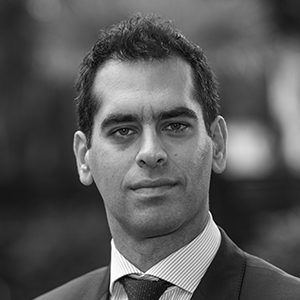
IESE Insight
The politics of evidence: how are healthcare decisions made?
A young woman is diagnosed with a rare neutrophil disorder, requiring long-term therapy. While the current treatment lacks robust clinical evidence, no viable alternatives exist, and discontinuing the therapy could lead to harmful consequences. Given these risks, the medical team overseeing her case decides to continue the treatment. It is unlikely to harm her and may reduce future risks of interventions, like intensive care, making it cost-efficient for the health service.
These kinds of decisions are a routine challenge for healthcare managers, especially in the post-COVID era, when healthcare budgets are under significant pressure globally. Whether determining the most appropriate treatment for a patient or maximizing the use of limited equipment and resources, the sustainability of healthcare in the Western world relies heavily on the ability to commission, plan and manage services that balance cost with quality. As a result, healthcare managers face intense pressure to adopt evidence-based practices and make decisions grounded in data. But what qualifies as “evidence”?
In a recent chapter in the book Shaping High Quality, Affordable and Equitable Healthcare (Palgrave Macmillan, 2023) examining decision-making in a medical context in the United Kingdom, IESE’s Manos Gkeredakis and coauthors Davide Nicolini, Ila Bharatan, Rachel M. Manning and Jacky Swan argue that what counts as evidence is subject to debate, conflict and controversy, even for topics supported by extensive scientific work.
The authors advocate for a broader, more inclusive understanding of evidence. They posit that the most scientific form of evidence is not always the most useful and may not always guide healthcare practitioners’ decisions as much as is commonly assumed.
Hierarchies of evidence
The collection of robust evidence for healthcare policies is critical, not only to ensure the long-term sustainability of healthcare services but also to uphold public trust in healthcare institutions. Recent debates, such as those surrounding early-age treatments for trans individuals or the perceived fairness of providing care to groups such as smokers or obese people, highlight the need for the public to have confidence in the scientifically grounded value of care.
For their study, the authors classified the evidentiary information that comes into play in healthcare decision making as follows:
- Universal: Clinical evidence and widely accepted knowledge that can be generalized across different contexts and continents.
- Local: Data collected from specific regions, often related to patient demographics, resource allocation or financial information.
- Trans-local: Examples of good practice shared through stories, anecdotes or case studies.
- Experienced-based: Insights from the personal experiences of patients, caregivers and healthcare professionals.
Healthcare professionals naturally gravitate toward universal evidence, as it is considered the most objective and widely applicable. This preference is also driven by the need for healthcare commissioners to demonstrate that their decisions are based on strong evidence and aligned with established guidelines.
However, each type of evidence presents its own challenges. Universal evidence, though highly regarded, is often taken for granted, making its universality difficult to question. Local evidence, while specific, can be subject to bias, incomplete data or political agendas. Trans-local information, as it is neither fully universal nor deeply personal, often struggles with credibility, dismissed as anecdotal and lacking broader relevance. Personal experience, though compelling, is frequently discounted for being subjective and too individualized to inform broader policy.
In practice, healthcare decision-making requires navigating these complexities, balancing different forms of evidence to create policies that are both scientifically sound and contextually appropriate.
Making the case
A closer examination of the reasoning used by medical panels reveals that while universal evidence is frequently cited as the main justification, it is not always the true driving factor behind treatment decisions.
Take the case of the woman with a rare neutrophil disorder. On the surface, few would challenge the decision to continue her treatment, yet the therapy itself lacks clinical validation, and even the original diagnosis remains uncertain. In this instance, rather than relying on universal evidence, the decision was influenced by a local concern: that discontinuing the treatment could lead to more costly intensive care interventions.
Another case explored by the authors involved a woman requesting a breast reduction. The panel denied her request, officially citing the absence of BMI data as the reason. However, a deeper look at the panel’s discussions reveals underlying skepticism about the patient’s motives. Several members privately expressed concerns that the request was driven by cosmetic rather than medical reasons.
In this instance, the reference to BMI served as a veneer for a more subjective, feelings-based decision. These cases illustrate how decision-making in healthcare can be shaped by local concerns or personal biases, even when couched in the language of evidence-based practice.
Beyond scientific objectivity
The harsh reality is that all evidence is, to some extent, political. Evidence is not something that is simply “discovered”; it is carefully constructed through a socially negotiated process. From the topics clinical researchers choose to study to the sources of their funding, favoritism and personal biases inevitably shape the process. This becomes evident when we see how medical research on women’s health issues often lags behind research focused on men, or how billionaire philanthropists frequently fund research into diseases that personally affect them or their families.
READ ALSO: Patently underrepresented: Why humankind needs more female inventors, in which Sampsa Samila suggests how the presence of more women on inventor teams can change the nature of healthcare innovations.
In this imperfect landscape, there is space for different kinds of evidence. Local evidence is particularly valuable in developing actionable and effective decisions, while experience-based evidence plays a crucial role in treating and caring for patients with rare illnesses, where scientific data may be incomplete or inconclusive.
The authors conclude that acknowledging the multifaceted nature of evidence — recognizing that it involves practical, moral and political judgments, not just scientific ones — is essential. It is critical to manage who contributes to the decision-making process, assemble the right decision-makers and ensure that all relevant voices are heard. Only by embracing this broader perspective can healthcare systems make informed, equitable decisions that go beyond the illusion of purely objective evidence.
About the research
The authors conducted a study of decision-making in England’s National Health Service (NHS). Between April 2013 and July 2022, clinical commissioning groups (CCGs) were responsible for getting the best possible health outcomes for their local population.
READ ALSO: Ethics in action: a model to navigate ethical dilemmas, in which Manos Gkeredakis presents a framework, also inspired by NHS panels, for deciding the “right” way to act in complex and unusual cases.

